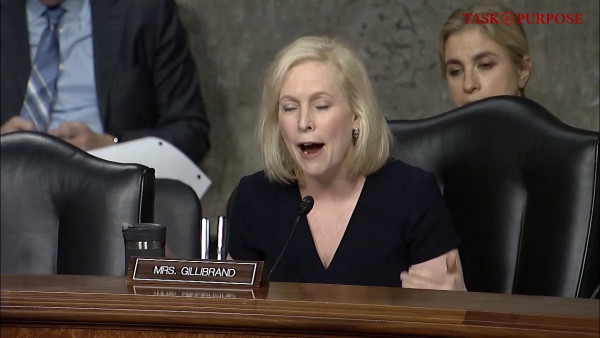

Once again, military sexual assaults are on the rise — and the numbers tell a grim story.
The Pentagon’s estimate of the number of service members who were sexually assaulted rose 37.5 percent from 14,900 in fiscal 2016 to 20,500 in fiscal 2018, according to the Defense Department’s latest report on sexual assault in the military.
That is the highest number of sexual assaults in four years, the report says.
Moreover, a biennial survey indicated a 44 percent increase in female service members between the ages of 17 and 24 who said they had been sexual assaulted, defense officials said.
The number of reported sexual assaults climbed from 6,769 in fiscal 2017 to 7,623 in fiscal 2018 – a 13 percent increase, the report says.
The Marine Corps saw the biggest spike in reported sexual assaults with 835 reports in fiscal 2018, a 20 percent increase, the report says.
One contributing factor to the rise of reported sexual assaults in the Marine Corps is that more than 60 percent of women serving in the Corps are younger than 25, and that is the age group that is most at risk of being sexually assaulted, said Ashlea M. Klahr, director of health and resilience research of the office of people analytics.
There were also 2,501 reported sexual assaults in the Army in fiscal 2018, an 18 percent increase; 1,271 reports in the Air Force, an 11 percent increase; and 1,446 reported sexual assaults in the Navy, a 10 percent increase, the report found.

(DoD Sexual Assault Prevention and Response Office)
Most of the alleged perpetrators are between the ranks of E-3 and E-5 and they are at the same grade or slightly higher than their victims, said Navy Rear Adm. Ann Burkhardt, director of the Pentagon’s Sexual Assault Prevention and Response Office.
As part of the Defense Department’s latest attempt to curb sexual assaults, the Pentagon will make sexual harassment a standalone crime under the Uniform Code of Military Justice, Acting Defense Secretary Patrick Shanahan announced on Thursday.
But the increase in sexual assaults show that commanders continue to fail when it comes to prosecuting offenders, said retired Air Force Col. Don Christensen, president of the advocacy group Protect Our Defenders.
“How many more assaults and rapes and how many more victims denied justice must there be before a stubborn and selfish military brass stops fighting reform?” Christensen said Thursday in a statement. “The young women and men who serve our nation deserve better. It is time for Congress to stop giving the failing military leadership the benefit of doubt and pass real reform empowering military prosecutors. Enough is enough.”

(DoD Sexual Assault Prevention and Response Office)
Still, Nate Galbreath, deputy director of the Pentagon’s Sexual Assault Prevention and Response Office, pushed back on the notion that none of the Defense Department’s prevention efforts have worked thus far.
“We know that what we do works with people,” Galbreath said. “The challenge is finding the right mix. As the reports shows this year … men are at not greater or increased risk for sexual assault than they were in 2016 and 2015.”
However, with the Defense Department seemingly unable to make progress on this matter, Task & Purpose asked whether it is time for the Pentagon officials tasked with preventing sexual assault to resign.
“I don’t think so,” Galbreath said. “What I would offer to you is that we’re the folks here that are the biggest advocates for victims of sexual assault in the Department of Defense. Personally, I’ve been with this now since 2007 and I plan to see this out to the end.”
Galbreath acknowledged that the most recent report on sexual assaults makes him angry, especially since he has devoted his life to combating sexual assault, first as a criminal investigator and then as a clinical psychologist. To get a handle on the military’s sexual assault problem, he said, defense official have to look at how service members meet and interact via social media.
“If we fired everybody because of a change in how the problem presented itself, we would have no one with any experience doing this job,” Galbreath said. “It’s just like: If the enemy changes its tactics, do you fire all of the commanders? Absolutely you don’t. You have to get after this and you have to understand what’s happening and what’s changed.”
